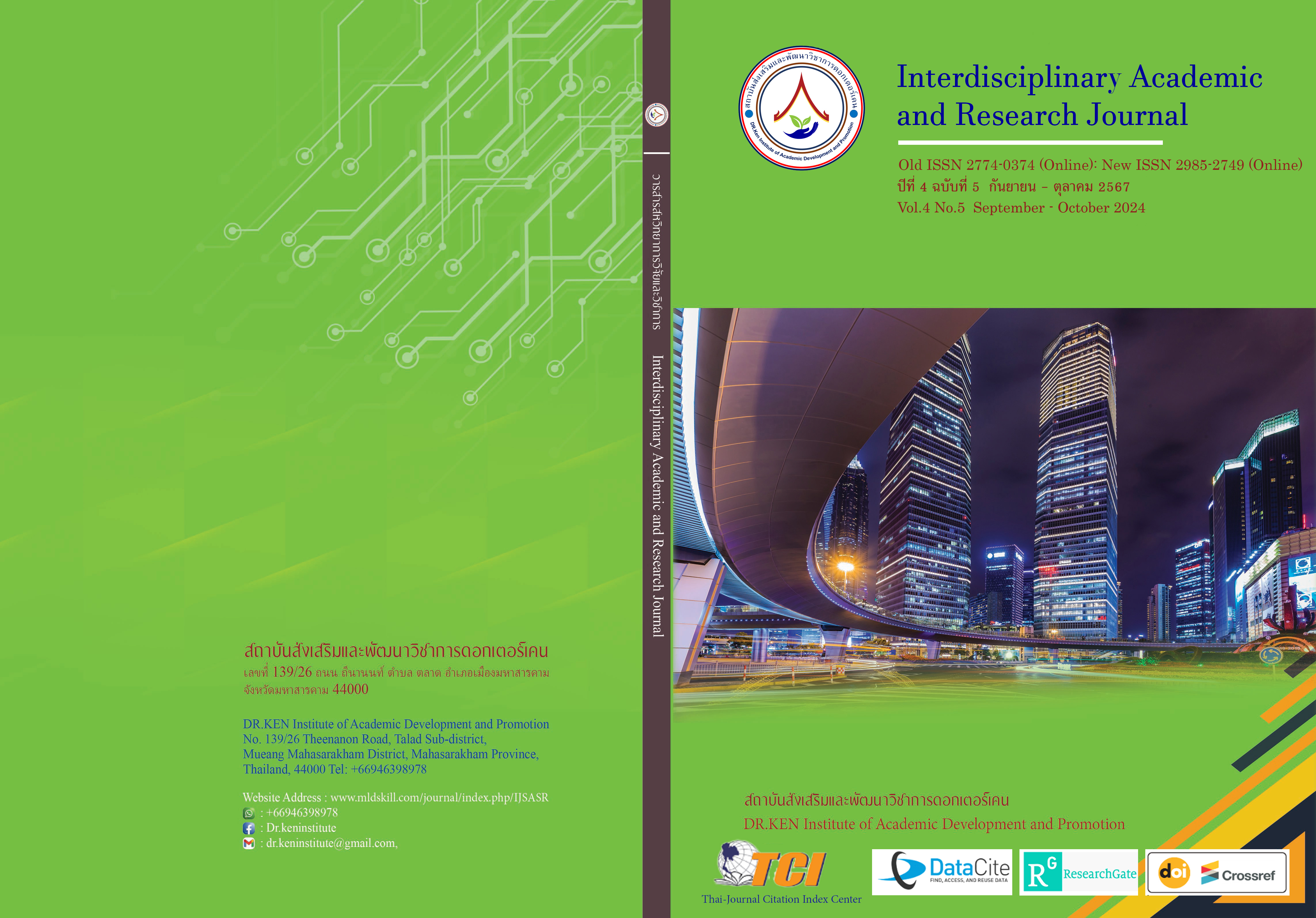The Budget Management Supported by the Government Sector to Systemic Private Schools, Nakhon Ratchasima Province
DOI:
https://doi.org/10.60027/iarj.2024.277294Keywords:
Administration; , Budget; , Budget management; , Government Support; , Systemic Private SchoolsAbstract
Background and Aims: Budgetary management of educational institutions focuses on management independence. This makes it flexible, transparent, and auditable. By adhering to management principles that focus on achievement and operating results. Budget management in this way also places importance on profiting from the educational institution's assets. Including generating income from various services to support efficient management and maximum educational benefits. This results in better quality for learners. The objective of this research is to study and compare the level of opinions of personnel towards budget management supported by the government sector of private schools in the system, Nakhon Ratchasima Province. Classified according to position and duty education level and experience in budget operations In addition, the objective is to study guidelines for managing budgets supported by the government sector of private schools in Nakhon Ratchasima Province.
Methodology: The sample group used in the research was personnel from private schools in the system. In Nakhon Ratchasima Province, a total of 354 people, were obtained by stratified random sampling. The research instrument consisted of a questionnaire using a 5-level rating scale, with an IOC value between 0.80 - 1.00 and a confidence value equal to 0.72. In addition, a structured interview was used. To collect additional information data analysis uses a variety of statistics including: Finding frequency, percentage, mean, standard deviation, t-test, F-test, and testing differences between groups using Scheffe's method. (Scheffé's Method) to compare data in cases where there are many groups.
Results: The results of the research found that (1) budget management supported by the government sector of private schools in the system of Nakhon Ratchasima Province Overall is at a high level. When considering each area, it was found that budget management in all areas was at a high level. (2) Results of comparative analysis of budget management supported by the government sector of private schools in the system, Nakhon Ratchasima Province. Classified by position and experience in budget work. Found that there was no difference but when classified according to educational level, it was found that there was a statistically significant difference at the .05 level. (3) Guidelines for managing budgets supported by the government sector of private schools in the system, Nakhon Ratchasima Province found that educational institutions have effective ways to organize and manage budgets. Emphasis is placed on budget allocation that takes into account output and cost of output. There is a procurement system that is orderly, concise, transparent, and can be audited. Moreover, complete accounting documents are used. And there is a continuous internal audit. To manage the budget according to the principles of good management.
Conclusion: The research results found that Budget management in private schools in Nakhon Ratchasima Province has been significantly improved thanks to government support which helps to enhance excellence in every aspect. It also emphasizes the importance of consistent policy and strict adherence to procedures in budget allocation. Focusing on work efficiency and responsibility in using resources in a worthwhile and effective manner.
References
กระทรวงศึกษาธิการ. (2563). หลักสูตรแกนกลางการศึกษาขั้นพื้นฐาน พุทธศักราช 2560. กรุงเทพฯ : โรงพิมพ์ชุมนุม สหกรณ์การเกษตรแห่งประเทศไทย จำกัด.
ขวัญเรือน มุ่งผลกลาง. (2563). การบริหารงบประมาณของสถานศึกษาขั้นพื้นฐาน สังกัดสำนักงานเขตพื้นที่การศึกษามัธยมศึกษา เขต 2. วารสารมหาวิทยาลัยราชภัฏลำปาง, 9(2), 1 -13.
จิดานันท์ สวนคล้าย. (2566). การบริหารงบประมาณของสถานศึกษา ในสังกัดองค์การบริหารส่วนจังหวัดนนทบุรี. SOUTHEAST BANGKOK JOURNAL (HUMANITIES AND SOCIAL SCIENCES, 9(1), 122 – 139.
จิรัญญิกา จันทร์ชื่น. (2564). การบริหารงบประมาณแบบมุ่งเน้นผลงาน ของกลุ่มเครือข่ายโรงเรียนเพื่อพัฒนาคุณภาพการศึกษาที่ 3 สังกัดสำนักงานเขตพื้นที่การศึกษาประถมศึกษาราชบุรี เขต 1. วารสารการบริหารการศึกษา มหาวิทยาลัยศิลปากร, 12(1), 156-168.
ชลณิการ์ วงศ์ษา และ เอกชัย กี่สุขพันธ์. (2557). การบริหารงบประมาณของสถานศึกษากรณีศึกษา 3 โรงเรียน ของโรงเรียนสังกัดสำนักงานเขตดุสิต กรุงเทพมหานคร. วารสารอิเล็กทรอนิกส์ทางการศึกษา, 9(3), 667-678.
เชวงศักดิ์ บุญแสน. (2563). การจัดการงบประมาณเพื่อการศึกษาของโรงเรียนประถมศึกษาในตำบลแม่วิน อำเภอแม่วาง จังหวัดเชียงใหม่. ศึกษาศาสตรมหาบัณฑิต สาขาการบริหารการศึกษา มหาวิทยาลัยเชียงใหม่.
ซุบรี ม่วงกุ้ง. (2558). การบริหารงบประมาณแบบมุ่งเน้นผลงานตามยุทธศาสตร์ในสถานศึกษา สังกัดสำนักงานเขตพื้นที่การศึกษาประถมศึกษาภูเก็ต. วิทยานิพนธ์ศึกษาศาสตรมหาบัณฑิต สาขาวิชาการบริหารการศึกษา. บัณฑิตวิทยาลัย: มหาวิทยาลัยหาดใหญ่.
นูรมาน พิทักษ์สุขสันต์. (2564). การบริหารงานระบบดูแลช่วยเหลือนักเรียนของผู้บริหารสถานศึกษาในอำเภอสายบุรีสังกัดสำนักงานเขตพื้นที่การศึกษาประถมศึกษาปัตตานี เขต 3. การค้นคว้าอิสระมหาบัณฑิต สาขาวิชาการบริหารการศึกษา คณะครุศาสตร์ มหาวิทยาลัยราชภัฏยะลา.
บุญชม ศรีสะอาด. (2553). การวิจัยเบื้องต้น. พิมพ์ครั้งที่ 8. กรุงเทพฯ : สุวีริยาสาส์น.
สำนักการคลัง. (2551). คู่มือการจัดซื้อจัดจ้างของกรุงเทพมหานคร วิธีกรณีพิเศษ. เอกสารประกอบการบริหารงานโรงเรียน หน่วยศึกษานิเทศก์ สำนักการศึกษา กรุงเทพมหานคร.
สำนักงานคณะกรรมการส่งเสริมการศึกษาเอกชน. (2566). รายงานประจำปี 2566. กรุงเทพฯ : สำนักงานคณะกรรมการส่งเสริมการศึกษาเอกชน.
สุวิทย์ หนองไผ่. (2565). การบริหารงบประมาณ. กรุงเทพฯ : ธีระฟิล์มและไซเท็กซ์.
อุบลกาญจน์ อมรสิน. (2565). การบริหารงบประมาณขององค์การปกครองท้องถิ่น จังหวัดอุบลราชธานี. วารสารสหวิทยาการนวัตกรรมปริทรรศน์, 5(2), 91-103.
Krejcie, R. V., & Morgan, D. W. (1970). Determining sample size for research activities. Educational and Psychological Measurement, 30(3), 607–610.
Downloads
Published
How to Cite
Issue
Section
License
Copyright (c) 2024 Interdisciplinary Academic and Research Journal

This work is licensed under a Creative Commons Attribution-NonCommercial-NoDerivatives 4.0 International License.
Copyright on any article in the Interdisciplinary Academic and Research Journal is retained by the author(s) under the under the Creative Commons Attribution-NonCommercial-NoDerivatives 4.0 International License. Permission to use text, content, images, etc. of publication. Any user to read, download, copy, distribute, print, search, or link to the full texts of articles, crawl them for indexing, pass them as data to software, or use them for any other lawful purpose. But do not use it for commercial use or with the intent to benefit any business.
















.png)


